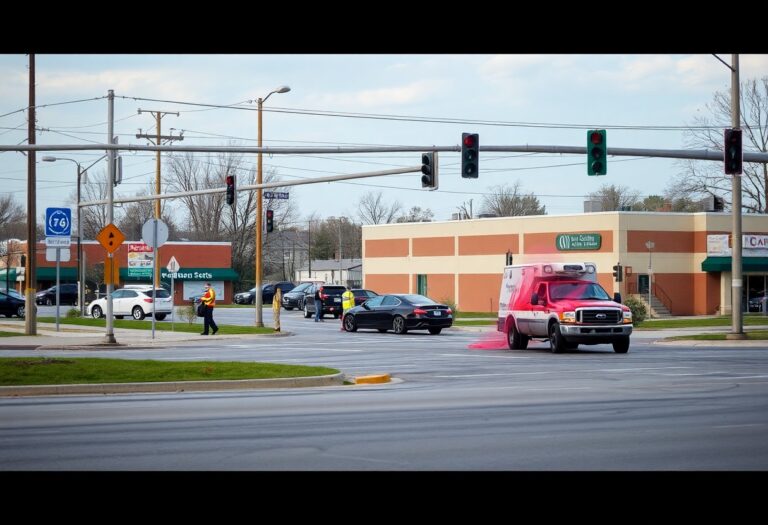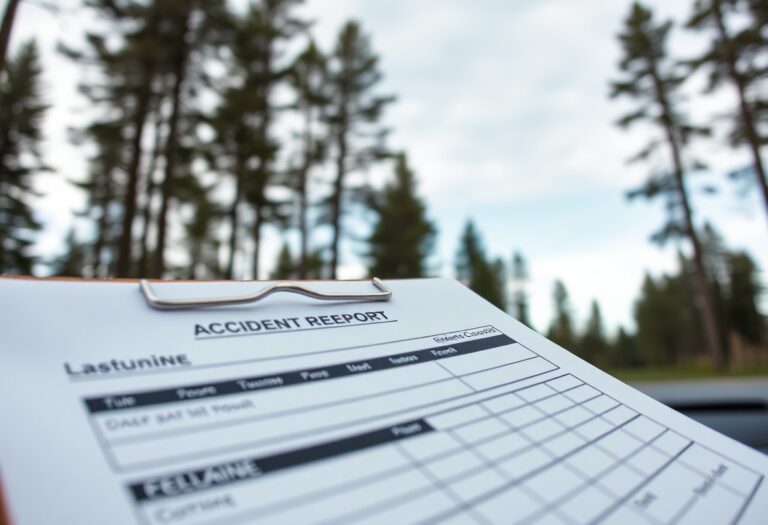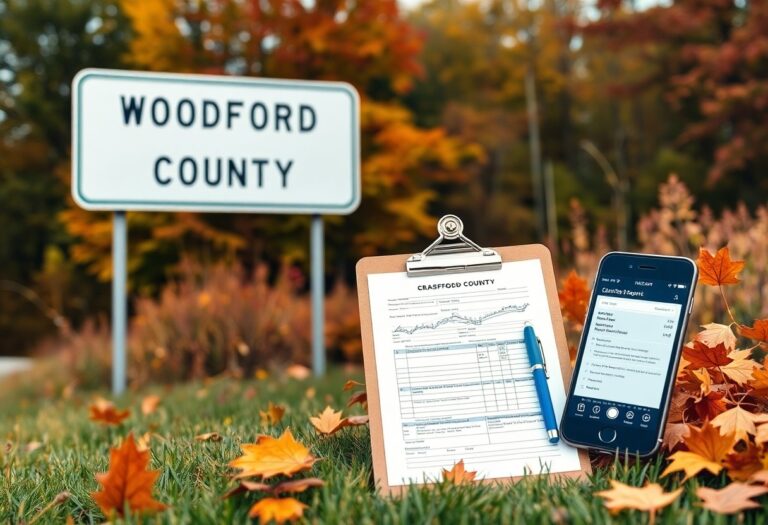You may find yourself in a car accident situation, feeling overwhelmed and unsure of how to proceed. In Monroe County, understanding the reporting process can make a significant difference in how your case unfolds. This guide will walk you through the imperative steps to take after an accident, ensuring that you are equipped with the knowledge to handle your report efficiently. With clear instructions and helpful insights, you’ll be able to navigate your way to resolving any issues that arise related to your accident.
Essential Steps Following a Car Accident in Monroe County
Understanding what to do after a car accident in Monroe County can significantly ease the stress of the situation. Taking specific actions promptly and gathering pertinent information ensures that you are well-prepared for any insurance claims or legal proceedings. Focus on assessment, documentation, and communication to effectively manage the aftermath of the incident.
Immediate Actions to Take at the Scene
After a car accident, your first step should be to check for any injuries among yourself and others involved. If anyone is hurt, prioritize calling for emergency medical assistance. Once safety is assured, move vehicles to a safe location if possible, and turn on hazard lights to alert other drivers. Communicating with other parties calmly can help prevent escalation while you wait for police to arrive.
Key Information to Collect for Your Report
Gathering specific details at the accident scene is imperative for your report. Collect names, addresses, and insurance information from all parties involved. Note the make, model, and license plate numbers of each vehicle, along with the time and location of the accident. It can also be beneficial to take photos of the scene, damages, and any relevant road signs, as visual evidence can strengthen your case.
When documenting the scene, ensure you also include the weather conditions and any road hazards that could have contributed to the accident. Collect witness statements, if available, to provide additional perspectives. Make sure to obtain the police report number and the name of the responding officer, which will be useful when filing an insurance claim or seeking legal advice. By compiling this information thoroughly, you can streamline communications with insurance agents and legal representatives, ensuring that you have a comprehensive account of the event.
Navigating the Monroe County Accident Report Process
Completing the accident report process in Monroe County is straightforward once you understand the steps involved. It starts with gathering information about the incident, which you must report to the appropriate authorities. Once you’ve documented the details, you can submit your report through the designated channels, ensuring it’s filed properly to avoid complications in any potential claims or legal processes.
Where to File Your Accident Report
You can file your accident report with the Monroe County Sheriff’s Office or the local police department that responded to the scene. Typically, reports must be submitted at the station or online, depending on the department’s protocols. Make sure to check for the specific coordinates of your locality; each municipality may have slightly different submission methods.
Required Documentation for Submission
To submit your accident report effectively, you’ll need to compile key documentation including your driver’s license, vehicle registration, and proof of insurance. Additionally, if there were any injuries, medical records might be necessary for a comprehensive report. Collect any photographs or witness statements from the scene, as these can substantiate your claims and help with the accuracy of the report.
Documentation plays a vital role in the accident reporting process. Besides your personal information, detail any damages and injuries, as this can impact liability and insurance claims. Evidence, like photographs showing vehicle positions and road conditions, enhances your report’s credibility. Ensure you keep copies of everything you submit for your records, which can be helpful later. Missing any of these documents may delay your claim or create complications in processing your report, so it’s best to prepare thoroughly.
Common Challenges in Car Accident Reporting
Accurately reporting car accidents comes with its own set of challenges, often compounded by confusion around various elements of the process. Many people find themselves overwhelmed by the legal jargon and procedural steps involved, while others might struggle to recall the details of the accident in the aftermath. Additionally, varying perspectives of involved parties can lead to inconsistent reports, making it difficult to establish a clear narrative of events. Navigating these complexities is vital for ensuring fair outcomes and proper compensation.
Misunderstandings about Liability and Fault
Misunderstandings about liability and fault often arise immediately following a car accident. You might assume that the driver who caused the collision is automatically liable, but state laws can complicate matters, especially in cases involving shared fault. Understanding local regulations in Monroe County is vital for determining how liability is assessed, as shared responsibility may affect compensation significantly.
Handling Disputes Over Accident Details
Disputes over the specifics of an accident are common, especially when eyewitness accounts vary. In such cases, accurate documentation and eyewitness statements become vital tools for establishing an accurate timeline of events. You will find that police reports, photos of the scene, and even traffic camera footage can help clarify conflicting narratives.
When handling disputes over accident details, it’s wise to gather as much evidence as possible from the scene. If you notice discrepancies in what others claim versus what occurred, secure witness statements right away. For example, if you were involved in an accident at a busy intersection, nearby surveillance video might support your version of events regarding the traffic signal. Being proactive in obtaining and presenting evidence can significantly bolster your case and clarify misunderstandings when disputing liability with other parties or their insurance companies.
Leveraging Local Resources for Comprehensive Support
Accessing local resources can significantly ease the aftermath of a car accident. Monroe County offers various tools that aid victims in navigating the complexities of recovery and legal processes. From connecting with local law enforcement to consulting regional health services, these resources provide a foundation for healing and resolution. Engaging with these support systems not only simplifies the recovery journey but also helps you make informed decisions regarding next steps, whether that’s managing medical expenses or addressing legal claims.
Accessing Legal Assistance and Insurance Guidance
Finding suitable legal assistance is key to understanding your rights following an accident. Local attorneys in Monroe County specialize in personal injury cases and can guide you through the often bewildering claims process with your insurance company. Engaging with a lawyer early can empower you to gather necessary evidence and build a compelling case for compensation, ensuring that you aren’t left with unmanageable expenses or unfair settlements.
Utilizing Community and State Programs for Victims
A range of community and state programs exist to support accident victims in Monroe County. These programs provide financial assistance, counseling services, and resources for medical care, helping victims regain stability. For example, the Indiana Crime Victims Compensation Fund can reimburse lost wages and cover medical expenses. Additionally, local non-profits may offer counseling services or temporary financial aid, assisting you in recuperating without added stress during recovery.
Participating in community and state programs can make a significant difference in your recovery process. Many organizations are funded specifically to assist accident victims, providing not just financial support, but also emotional and psychological help. Local groups often host workshops and seminars to educate victims about available resources, while state programs can aid in navigating the legalities of your accident. Each of these resources aims to empower you, ensuring you have the comprehensive support you need to heal and rebuild your life effectively.
The Impact of Accurate Reporting on Insurance Claims
Accurate reporting plays a vital role in the resolution of insurance claims following car accidents. When information is precise and thorough, it facilitates the claims process, enabling insurance adjusters to assess liability and damages quickly. Clear reports help establish a timeline of events, corroborate eyewitness accounts, and ensure that all relevant details are documented. This level of detail can often determine the speed and success of your claim settlement, making it important for your interests and peace of mind.
How Reports Influence Claim Outcomes
The details in your accident report can significantly sway the outcome of your insurance claim. Well-documented evidence can validate your account, leading to favorable settlements. Conversely, vague or inaccurate reports may leave room for disputes and denials from insurance companies. Adjusters often rely heavily on hard facts, making your narrative in the report important for justifying your claim and obtaining the compensation you deserve.
Tips for Ensuring Your Report is Favorably Received
To enhance the reception of your accident report, focus on clarity and detail. Providing comprehensive information not only strengthens your case but also builds trust with the involved insurance parties. Ensure that you include specifics such as the accident’s time, location, and weather conditions, and be sure to list all parties involved. Additionally, gather witness statements if possible, as this reinforces your account. This attention to detail can lead to smoother claims processing.
- Be concise yet detailed in your accident report.
- Document all relevant evidence without omission.
- Gather additional information like witness statements to enhance your report.
- Maintain a positive tone and focus on factual occurrences.
Maintaining organization and clarity in your report is important. Start by summarizing the core details of the accident in an easy-to-read format. Employ numbered lists for steps taken immediately after the incident or timelines leading up to it. Consistency in structure not only aids comprehension but also presents your case in a professional light. This can encourage adjusters to view the claim favorably and expedite the resolution process.
- Use clear sections and bullet points for an easy-to-follow format.
- Cross-check dates, times, and names for accuracy.
- Consider adding diagrams that show the accident scene layout.
- Follow up with your insurance carrier regarding the status of your claim.
To wrap up
Drawing together the insights from Monroe County, Indiana, you can navigate the often complex process of filing a car accident report with clarity and confidence. By understanding the local regulations and utilizing available resources, you can ensure that your report is accurate and comprehensive, ultimately leading to a more effective resolution of your case. Prioritizing your documentation and seeking assistance when needed will empower you to manage this challenging situation with ease.













